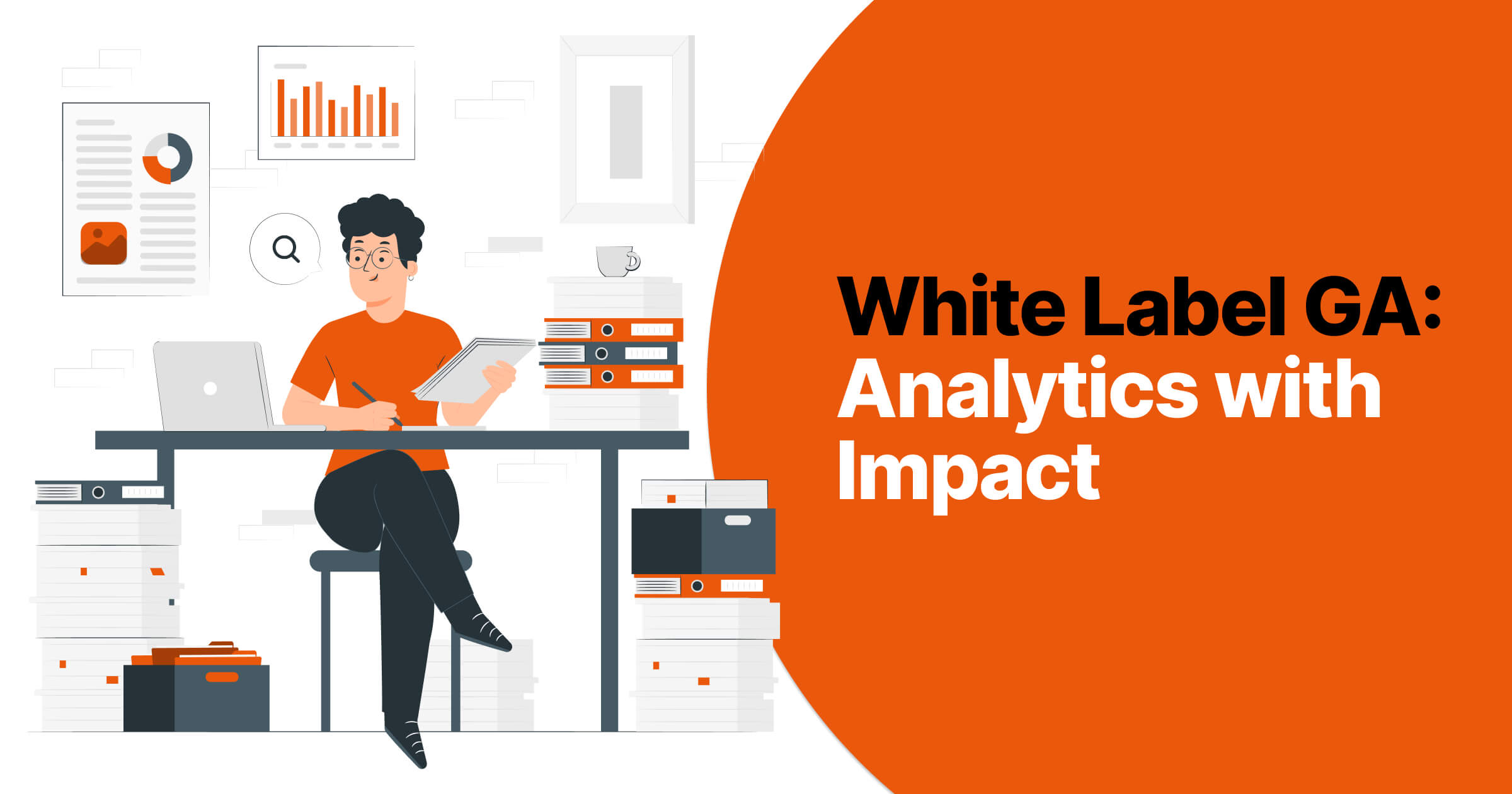What are White Label Google Analytics Reports?
Google Analytics is undeniably a potent tool in the digital marketer’s arsenal, providing in-depth insights into web traffic, user behavior, and more. However, as presented, these reports carry the unmistakable stamp of Google — they’re generic, universal, and, to some, a bit impersonal.
White label Google Analytics reports transform this experience. Instead of presenting data with Google’s branding, these reports allow agencies and businesses to add their own unique branding elements. Whether it’s the agency’s logo, color scheme, domain, or a specific design template, these reports become entirely personalized. This not only enhances the visual appeal but also instills a stronger sense of trust and professionalism in the eyes of the clients. By using white label reports, agencies convey a message: the data and insights presented are tailored, analyzed, and curated specifically for the client, making them more than just another number in the vast digital landscape.
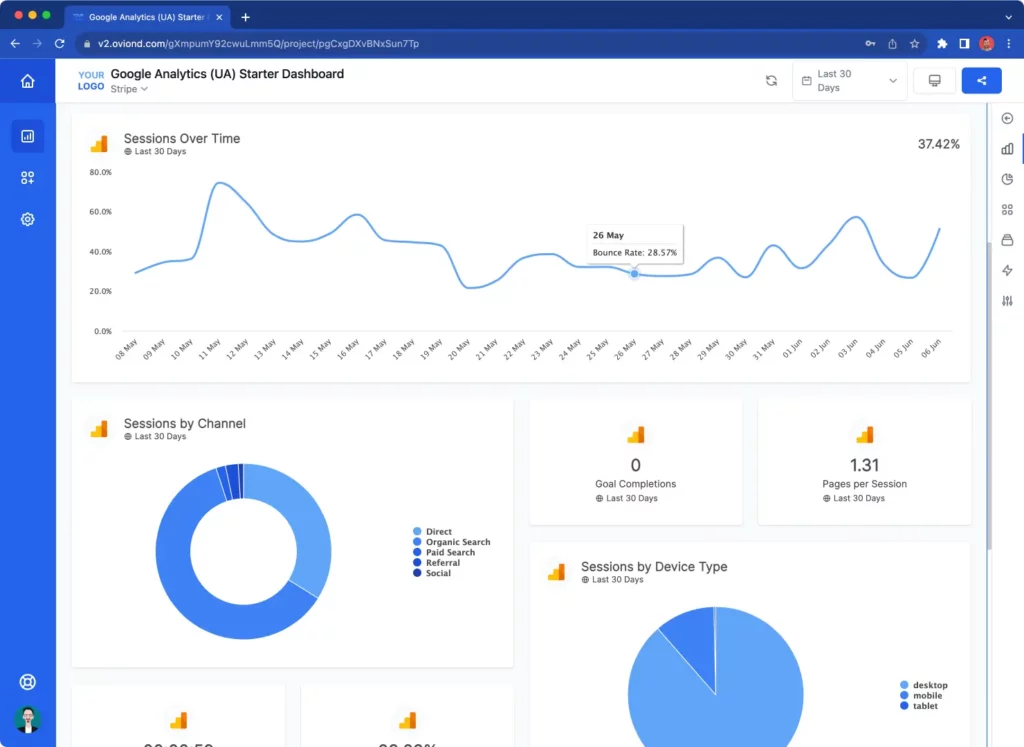
Painless White Label Dashboards for Google Analytics and Your Other Marketing Data Sources
Google Analytics swiftly claimed its position as the premier tool for tracking, analyzing, and reporting website traffic and user behavior. Its rise was nothing short of meteoric. But with its ubiquity came a challenge for digital agencies and businesses: How to stand out and offer unique insights in an ocean of generic reports?
Enter the painless solution: White Label Dashboards for Google Analytics. Recognizing this need, several software tools have been developed, with many in the market dedicated to addressing this very challenge. These solutions not only allow you to present white label Google Analytics data but also empower agencies to integrate data from other marketing platforms, presenting a holistic view alongside Google’s data.

These dashboards aren’t just a fresh coat of paint on a familiar interface; they are game changers. Here’s why:
⌛Time Efficiency: Gone are the days of manually rebranding or reformatting Google’s standard reports. With white label dashboards, the data is instantly presented in a way that aligns with your brand’s identity, saving countless hours.
😌Reduced Stress: Delivering data to clients or stakeholders in a digestible, branded format eliminates the guesswork and potential misunderstandings that can arise from generic reports.
✨Branded Experience: First impressions matter. Presenting a client with a dashboard that reflects their brand—or your agency’s brand—creates an immediate connection. It communicates a clear message: this isn’t just data; it’s a personalized, curated experience.
🎯Unified Reporting: Combining data from various marketing platforms under one branded dashboard offers a comprehensive picture of the digital landscape. This synergy allows for more informed decision-making and a clearer understanding of overarching strategies.
By harnessing the capabilities of specialized software tools, embracing white label dashboards for Google Analytics becomes more than a strategy; it’s a statement. It tells your clients that you’re committed to providing top-tier, tailored insights that cater specifically to their needs. In a world of information overload, that level of personalization and comprehensive overview is priceless.
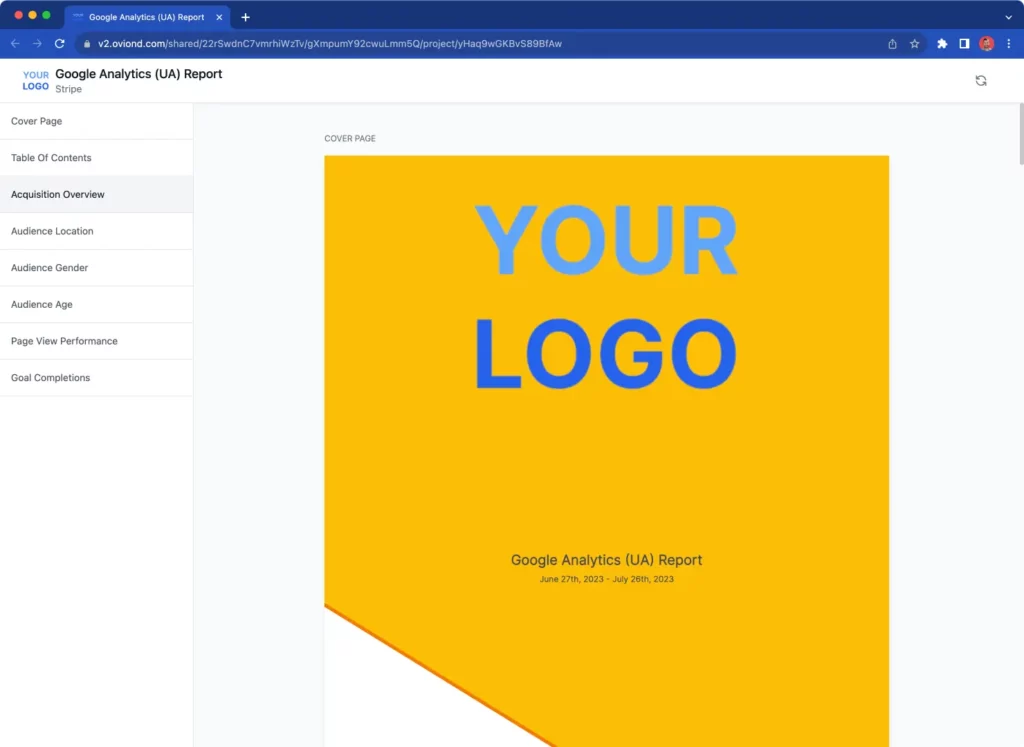
Top 5 Software Tools for White Label Dashboards for Google Analytics and Your Other Marketing Data Sources
Oviond
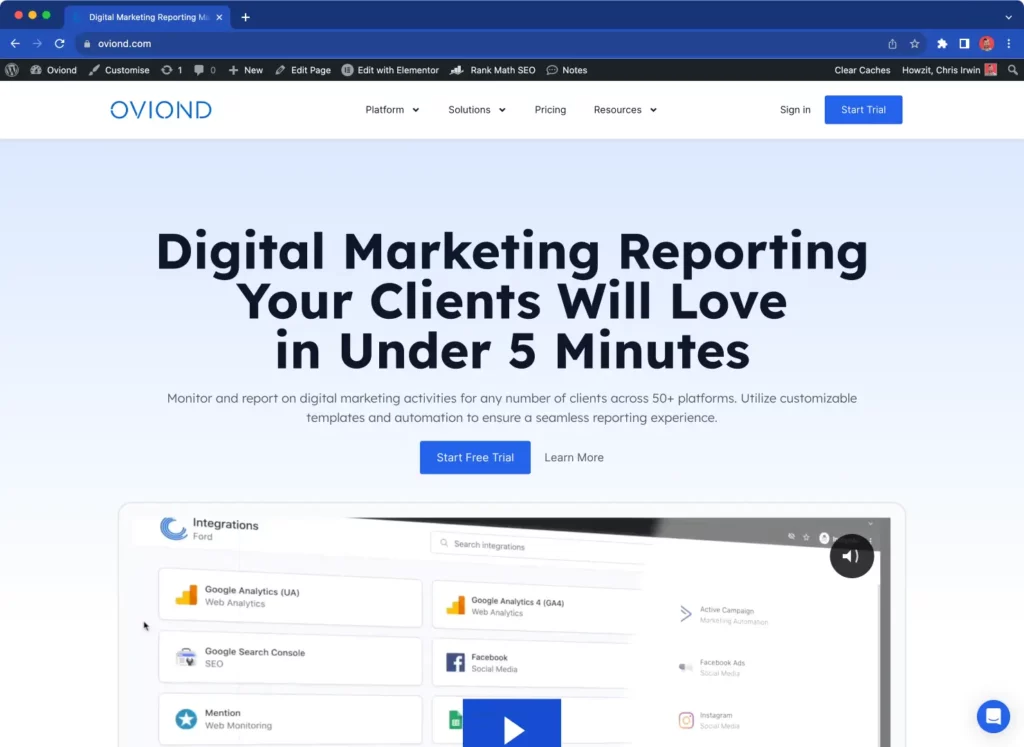
Recognized in the industry for its versatility, Oviond seamlessly integrates with Google Analytics and numerous other marketing platforms. The software is known for its customizable templates and the ability to provide a unified view of various data sources, making client reporting streamlined and professional.
AgencyAnalytics
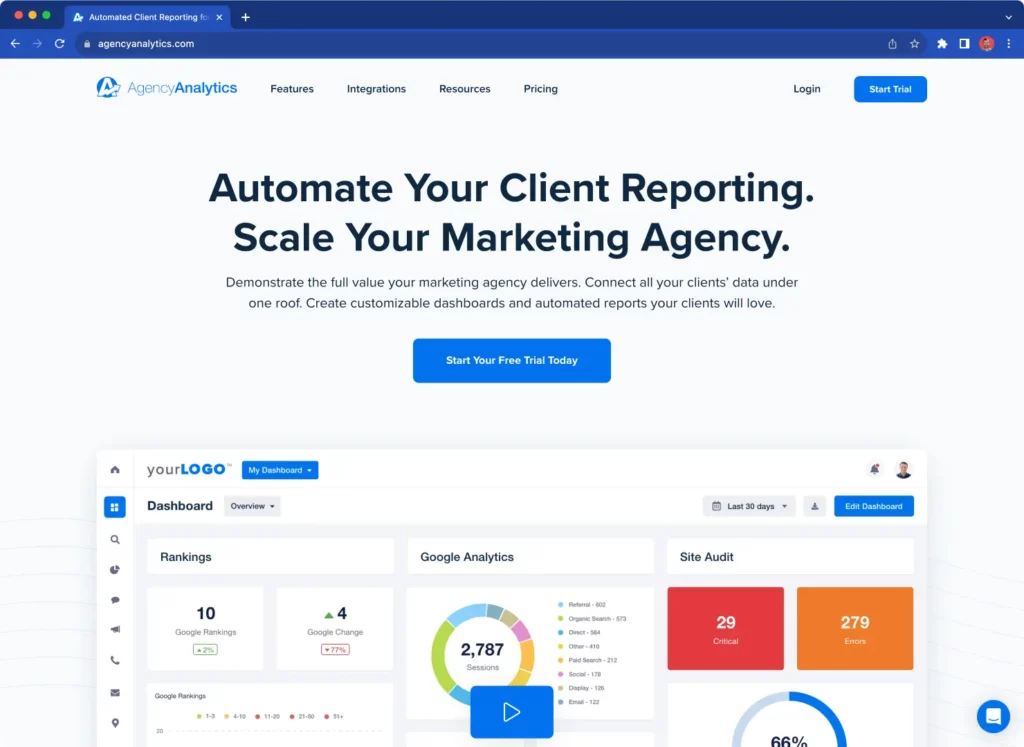
AgencyAnalytics caters to both small and large digital agencies. Its strengths lie in automated reporting, a wide range of integration possibilities, and a user-friendly dashboard. The software positions itself as an all-in-one reporting platform for agencies.
Databox
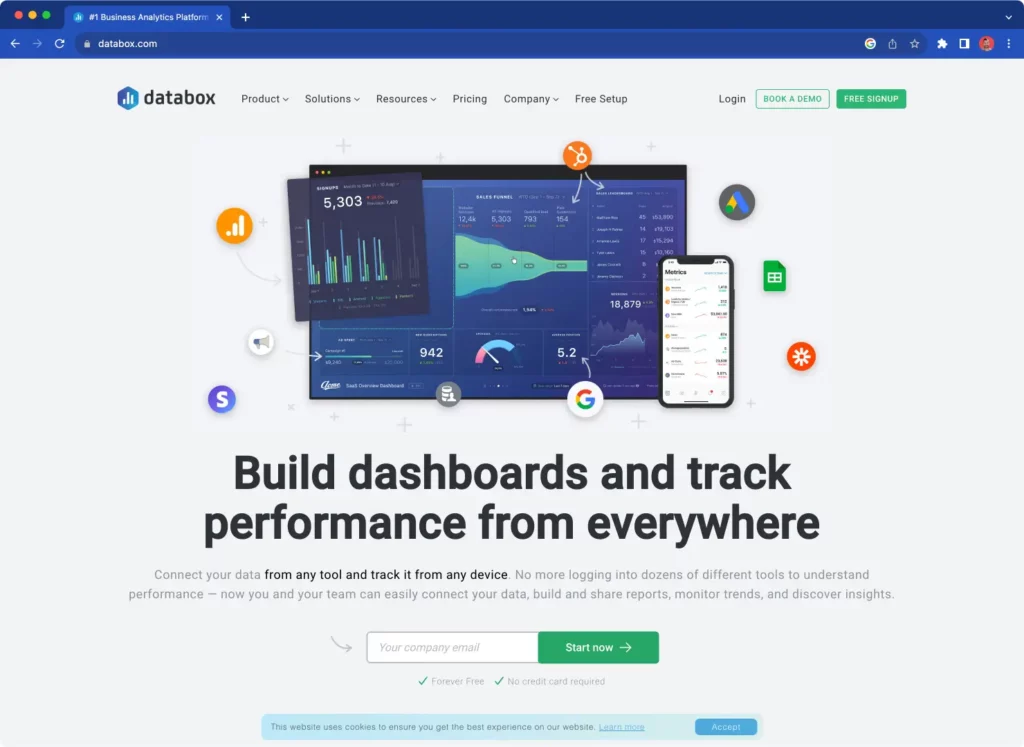
Databox is a dynamic player in the realm of data visualization and analytics. With a focus on real-time data tracking, Databox is particularly beneficial for agencies wanting instant updates from multiple data sources, including Google Analytics, in one consolidated dashboard.
Klipfolio
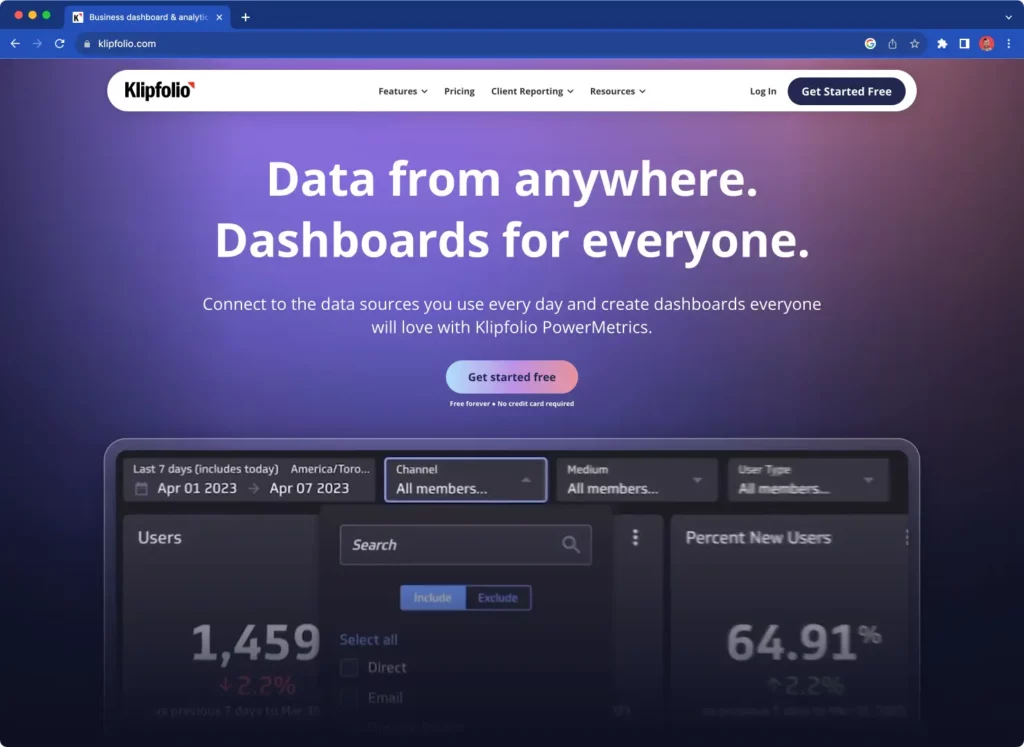
Klipfolio is more than just a dashboard tool. It’s a platform that focuses on agility, allowing marketers and agencies to customize their dashboards deeply. By integrating multiple data sources, it offers flexibility in terms of the metrics displayed and how they’re visualized.
Cyfe
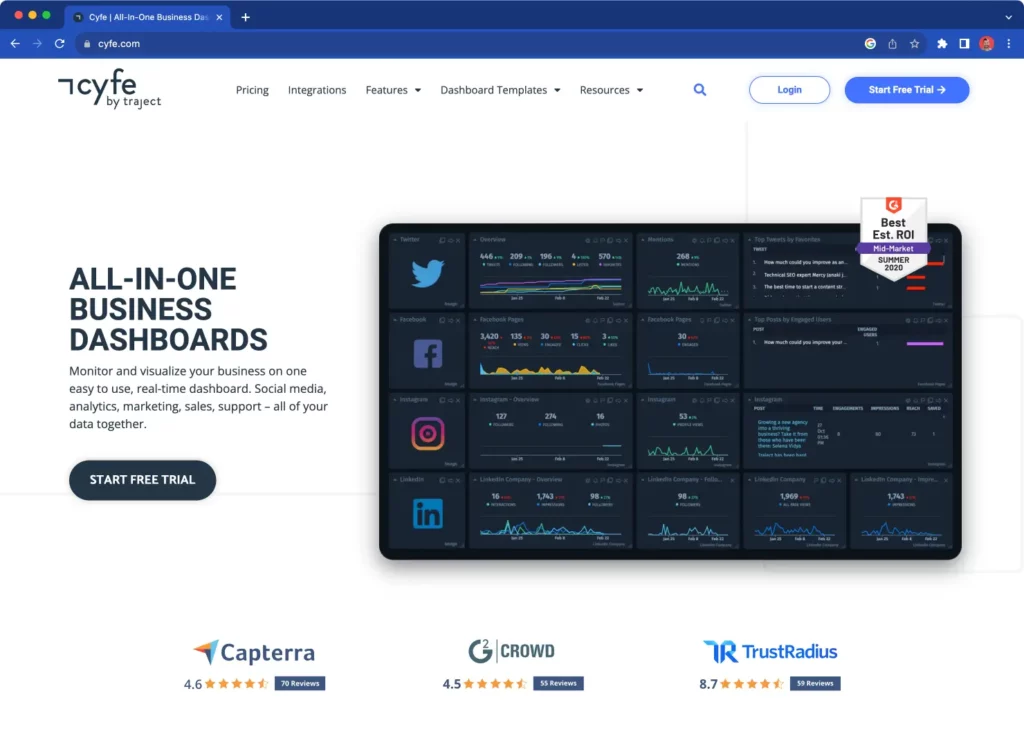
Cyfe pitches itself as an all-in-one business dashboard app. With a vast range of pre-built widgets, it allows users to pull data from numerous platforms, including social media, advertising, blogging, email, and, of course, Google Analytics. Its simplicity and comprehensiveness make it a favorite for many businesses and agencies.

Key Factors in Choosing a White-Label Analytics Dashboard and Reporting Software
Making the right choice in white-label analytics software isn’t just about flashy features. It boils down to three key elements: integration, usability, and affordability.
🔌 Ease of Integration
- Timesaving: Prioritize tools that allow quick setups, shifting focus from configuration to analysis.
- Minimal Hiccups: Opt for software that promises smooth integration with platforms like Google Analytics to reduce technical glitches.
👍 Ease of Use
- Swift Onboarding: Choose interfaces that require minimal training, streamlining the adaptation process for your team.
- Client-Friendly: The dashboard should be intuitive, ensuring clients can navigate their data effortlessly.
⚖️ Ease of Price
- Cost-Effective: Match the tool’s price with its offerings. Avoid overpaying for unneeded features or compromising on essential functionalities.
- ROI-Centric: Your chosen tool should boost client satisfaction, potentially leading to increased retention and upselling opportunities.
In a nutshell, the best white-label analytics tool effortlessly integrates, offers a user-friendly experience, and provides value for money, ensuring both your agency and clients benefit.

Sealing Brand Authenticity with White Label Google Analytics Reporting
white label Google Analytics reports are more than just a facelift for your data. They are a testament to your agency’s commitment to delivering personalized, insightful, and professional communication. By carefully selecting the right tools and leveraging their full potential, you not only streamline your analytical processes but also elevate your agency’s brand, setting a new standard for client reporting in the digital age.
Embark on this journey with a tool that matches your ambition and watch as your data storytelling transforms from generic to genuinely compelling, making every report a reflection of your agency’s excellence and expertise.

Frequently Asked Questions about White Label Google Analytics Reports
What is a white label report?
A white label report is a data report generated by one company but branded and customized to appear as though it was created by another company. This approach allows businesses to present data in a manner consistent with their branding, enhancing professionalism.
What is a white label dashboard?
A white label dashboard is a customizable data visualization interface that can be branded according to a business’s specifications. Instead of using a generic interface, companies can employ a dashboard that aligns with their branding, ensuring a more consistent client experience and brand recognition.
Painless White Label Dashboards for Google Analytics – what are they?
These dashboards offer easy integration with Google Analytics, allowing businesses to extract and display data in a user-friendly, branded format, eliminating the need for intricate setup processes.
How does using white-label analytics enhance client relations?
Utilizing white-label analytics tools enables businesses to showcase data in a client-centric format under their brand. This strategy fosters trust and nurtures stronger client relationships by offering a consistent brand experience.
Can you give an example of a white label product?
In the digital sphere, a white label product might be a software or digital service created by one firm but branded and retailed by another. For instance, a generic CRM software might be sold under several brand names.
How can you explain white labeling with an example?
White labeling is the act of rebranding a product or service provided by a third party to make it appear as one’s own. For example, a retailer might stock products under its brand name, but these products are manufactured by an external company.
What is the best white label analytics platform?
Many platforms cater to white label analytics, with the best choice often depending on specific business needs and preferences. Oviond is a notable example recognized for its comprehensive attributes and ease of use.
